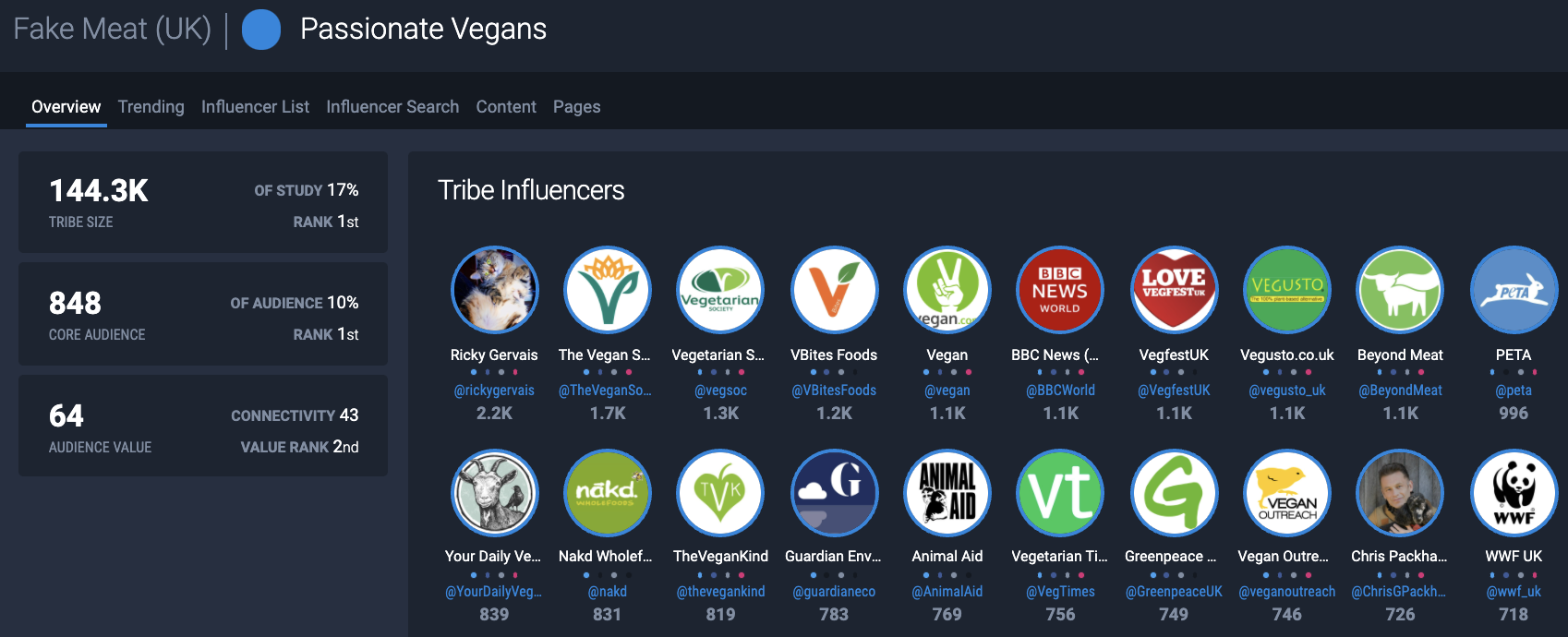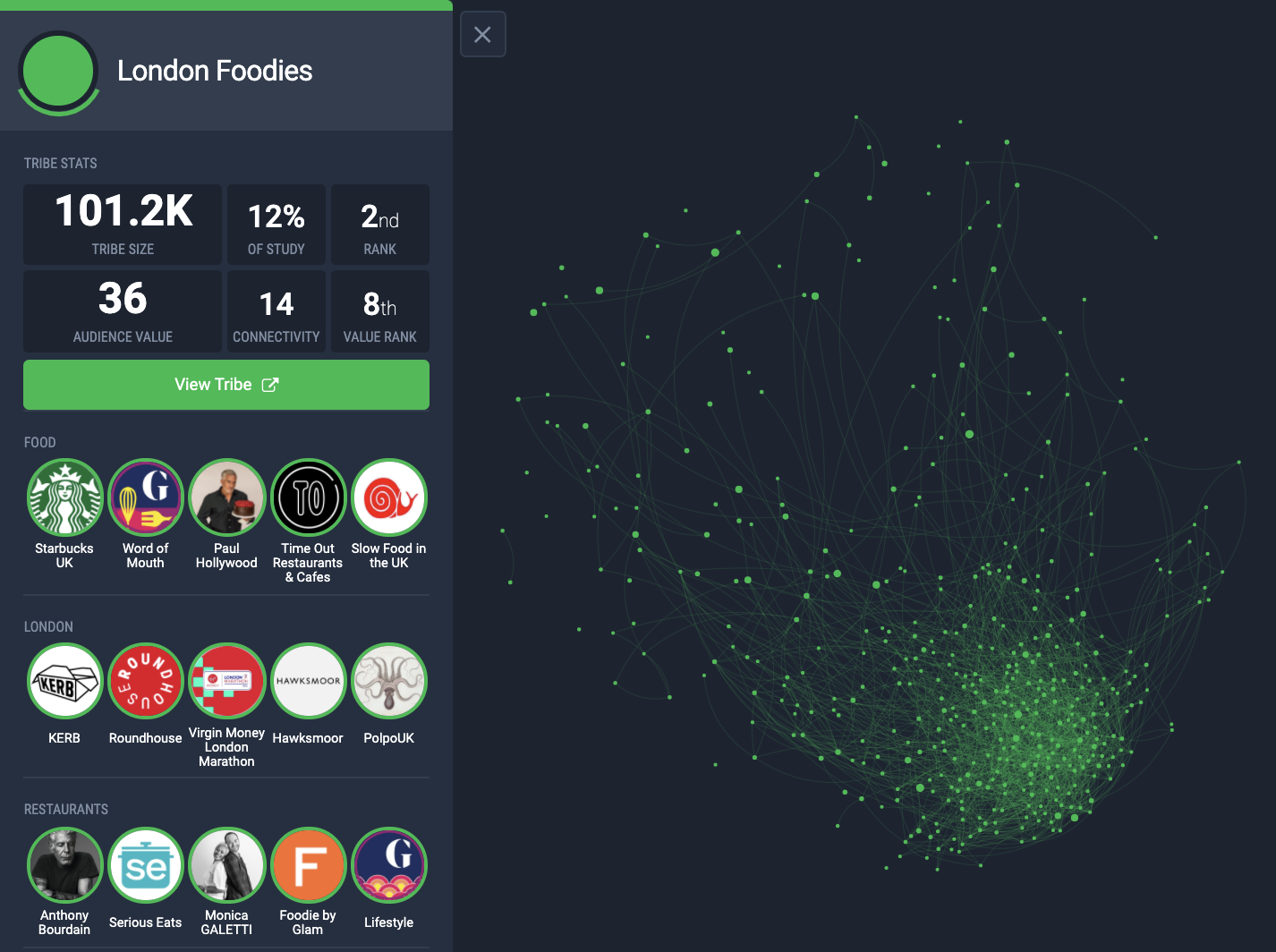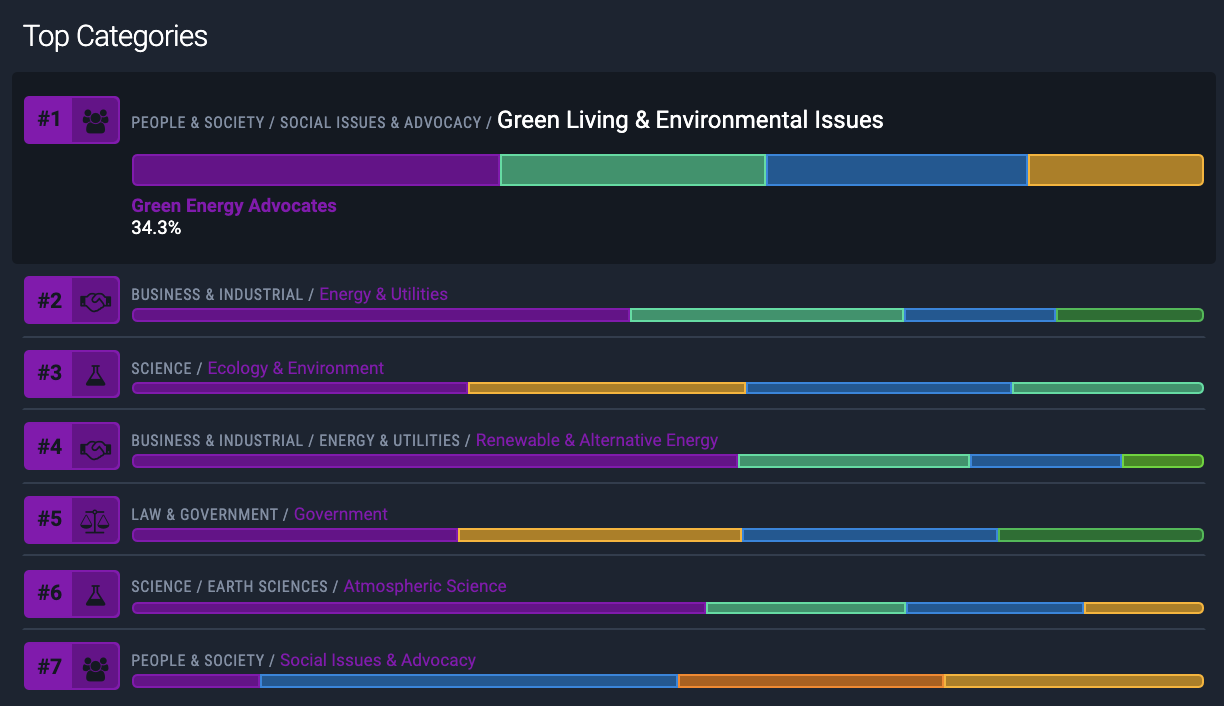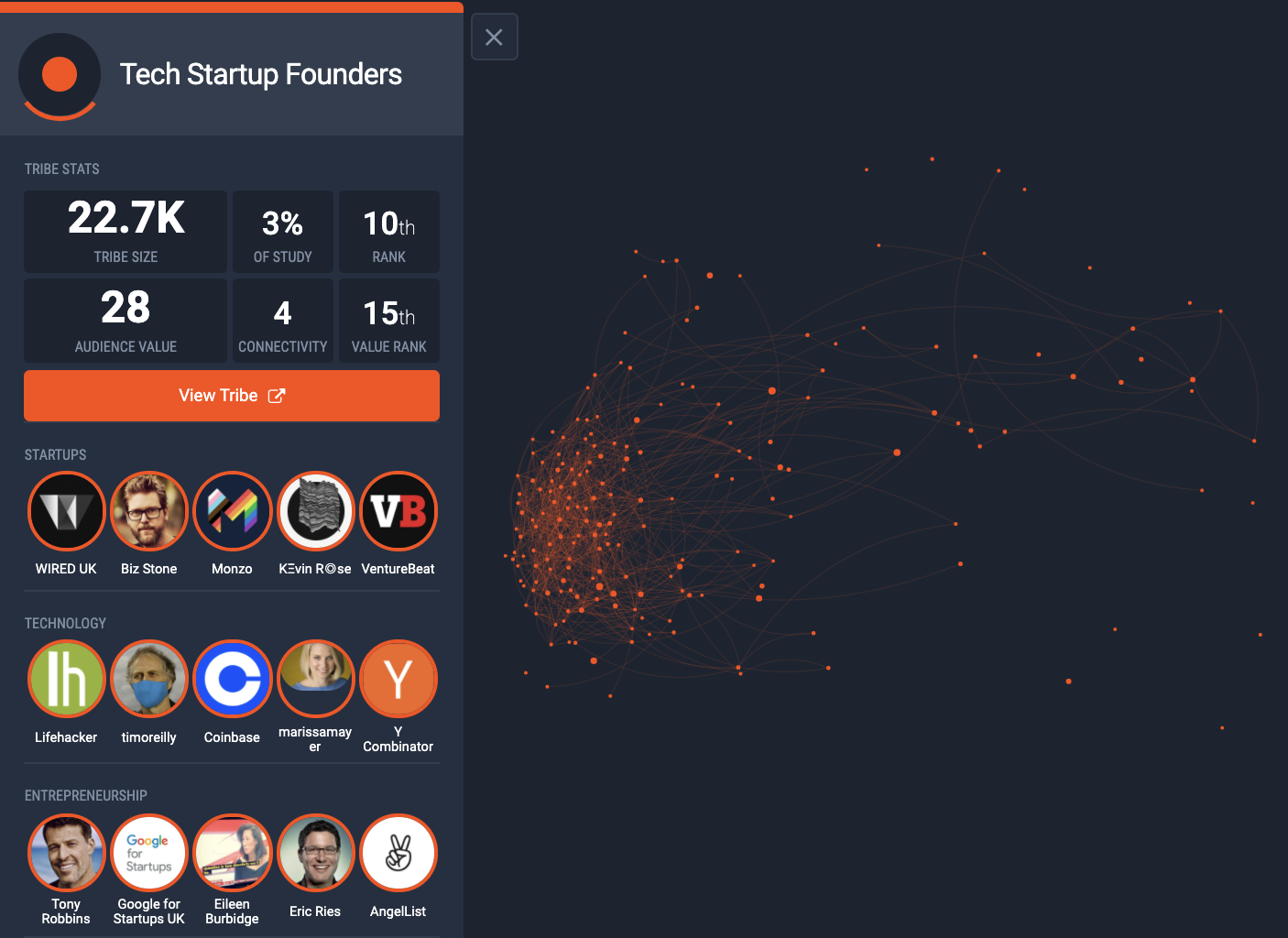There's no doubt that Covid-19 has accelerated the shift to meatless alternatives. Changing consumer behaviour and an increased awareness of health, coupled with COVID-19 outbreaks in meat processing plants around the world, cost the beef industry alone an estimated $13.6B in losses in 2020.
Meanwhile, that same year, we saw demand for vegan meat soar, with retail sales of plant-based meat alternatives rising 27% to reach an estimated value of $7bn. One of the biggest players in the plant-based meat game is burger giant Beyond Meat, which went public last year at a valuation of nearly $1.5bn.
So, who are the audiences behind this seismic shift toward meatless?
For the third and final part of our vegan series in collaboration with positive impact brand consultancy (S)WEAR, we delved into the audiences of some of the leading fake meat brands, including Beyond Meat, Meatless Farm, Impossible Foods, Neat Burger, Meatless Monday and V Bites, to gain a better understanding of the full potential of this emerging market.
Here's what we uncovered:
1. Alternative meat as a catalyst for change.

One of the biggest differences between this most recent study and our previous study into the dirty vegan market, is that our vegan diehards have a much larger stronghold within this audience, with Passionate Vegans emerging as the largest audience. Top influencers included PETA, Greenpeace and The Vegan Society, indicating that this audience has a penchant for charities and organisations campaigning for vegan issues like animal welfare.
In contrast, in our Dirty Vegans study, Passionate Vegans only emerged as the third largest audience within our study, suggesting vegan junk food is less popular than vegan meat alternatives amongst long-standing vegans.
2. British foodies want a slice of the plant-based pie.

As well as Bristol and Brighton, two of the most vegan-friendly cities in the UK according to a recent survey, London also emerged as a prime location for fake meat lovers, with London Foodies indexing as the second largest audience behind Passionate Vegans. The fact that fake meat brands are attracting more sophisticated culinary enthusiasts shows how the vegan food scene is now extending beyond smaller vegan meccas and making its mark on the capital.
Some key influencers amongst this audience included street food incubator Kerb Food, grassroots movement Slow Food UK, and London-based Speciality & Fine Food Fair.
3. Veganism is evolving away from a way of eating to a way of living.

Artsy audiences such as Cultured Thespians and Cinema Enthusiasts also played a leading role in this study, another indicator of how the growth of fake meat into popular culture has led to its adoption by a more sophisticated mainstream.
In addition, communities of Green Energy Advocates and Sustainability Advocates were again adding to the point of the adoption by the more sophisticated, cultured mainstream. Environmental issues are typically expected to resonate with vegans, but here we see the audience engaging with them in a ‘big picture’ way through global organisations such as the IPCC, Sierra Club, Climate Power.
4. Plant-based technologies are attracting innovators.

We found an array of professionals, including London Media Professionals, Mancunian Creatives and Digital Professionals, all of which point towards a younger portion of the workforce that combine tech and design to make a living. Similarly, we identified several groups of Tech Startup Founders and Software Developers that suggest the fake meat community is inherently tech-savvy, reflecting the rise of fake meat to the forefront of food tech innovation.
Are you a plant-based business? Book a demo today to discuss how these audience insights can help grow and communicate your brand more effectively.





































